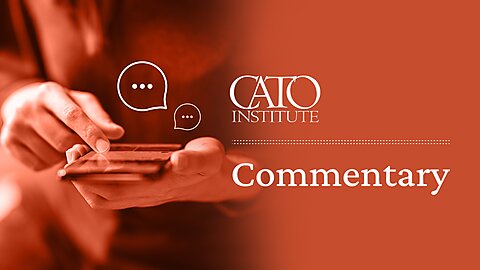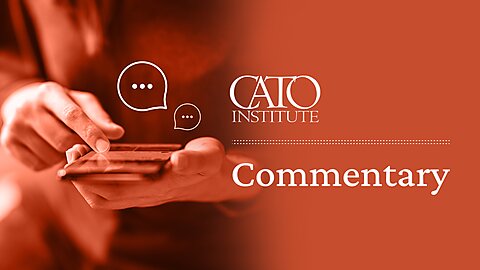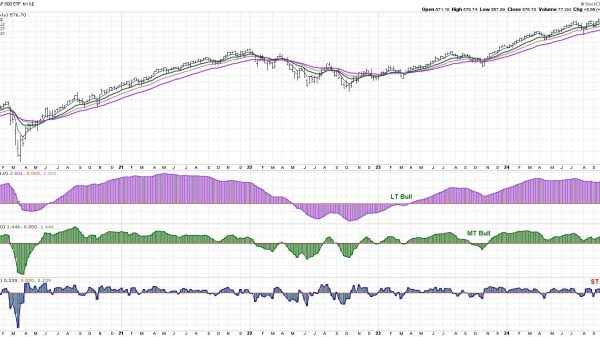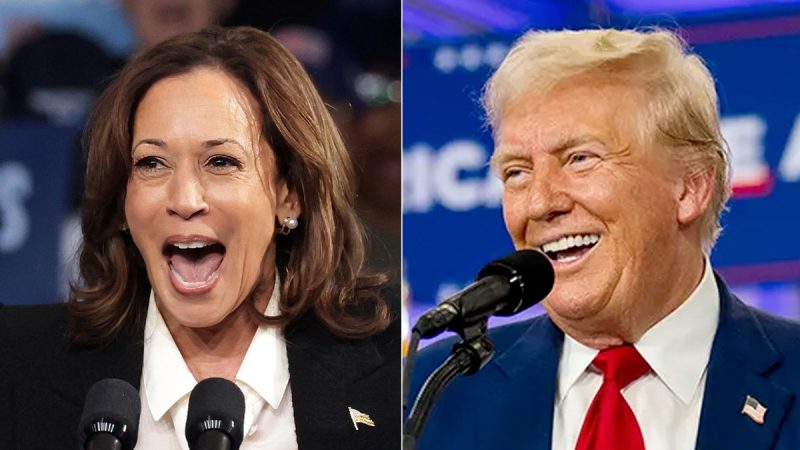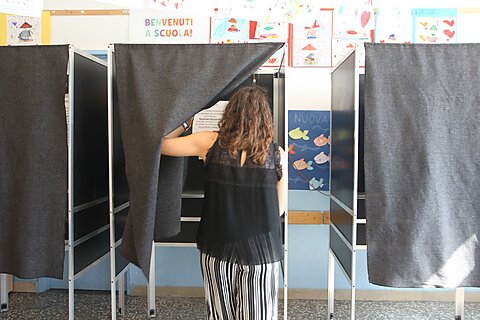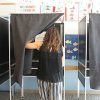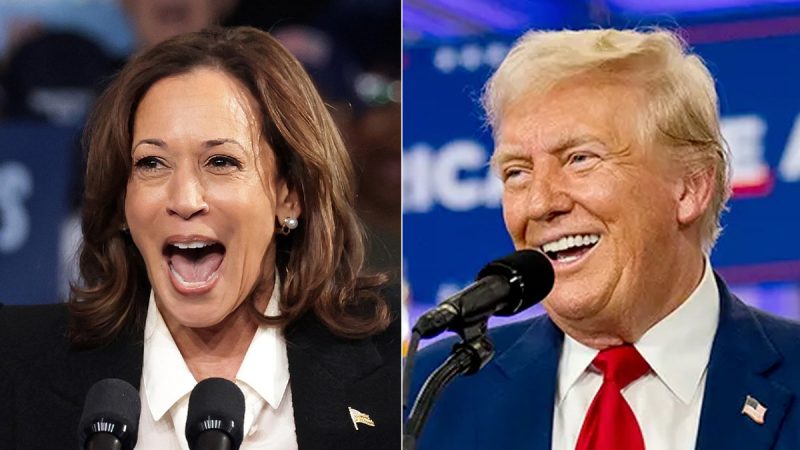
Former President Donald Trump is ahead of Vice President Kamala Harris in the presidential contest, 50-48% according to a new Fox News national survey. That’s a reversal from last month when Harris had a narrow advantage.
Harris, however, is ahead by 6 points among voters from the seven key battleground states and the candidates tie 49% each among voters in close counties (where the Joe Biden-Trump 2020 margin was less than 10 points). Trump’s advantage comes from a larger share in counties he won by more than 10 points in 2020 (64-35%) than Harris has in counties Biden won by more than 10 points (58-39%).
That raises the question of whether the Democrat could win the Electoral College while losing the national popular vote. In 2000 and 2016, it was the GOP candidate who lost the popular vote but won the Electoral College.
Trump’s 2-point edge among likely voters falls well within the margin of error. The results are identical among the larger group of registered voters. Last month, Harris was up by 2 points (50-48%) among both likely and registered voters.
This analysis uses registered voter results for apples-to-apples trend comparisons.
These are Trump’s best numbers since Harris became the nominee in August. The movement toward him mainly comes from an increase in support among White voters, who now favor him by 10 points, up from 4 points last month and 6 points in August. He is also at record highs among voters 65 and over (49%) and those with a college degree (48%).
At the same time, Harris receives her lowest support since becoming the nominee among Black voters (67%), college graduates (49%), voters 65 and over (47%), and Whites with a college degree (46%).
Yet on the surface, the race has stayed within a small range. In August, Trump was ahead by 1 point, then Harris was up by 2 points in September, and now Trump has a 2-point edge.
‘Overall, the movement toward Trump is subtle but potentially consequential, especially if he is making gains among college-educated voters,’ says Democratic pollster Chris Anderson, who conducts Fox News surveys with Republican Daron Shaw. ‘However, the race has been well within the margin of error for three months and the outcome will likely hinge on which side is more effective at getting their voters to the polls as opposed to persuasion.’
The 20-point gender gap remains, as men back Trump and women go for Harris.
The good news for Harris is she gets 52% of new voters (those who haven’t voted in the last two presidential elections) and 20% non-MAGA Republicans.
She is also maintaining her double-digit lead over Trump among independents. That keeps the contest close, as each candidate receives backing from over 9 in 10 of their respective partisans. On the other hand, more voters nationally identify as Republican than Democrat, and that is what gives Trump the edge in this race.
While the vice president gets majority support among Hispanics (52%) and voters under age 30 (54%), both numbers trail President Joe Biden’s support in 2020 according to the Fox News Voter Analysis election survey (6 in 10 from each group).
For Trump, the good news is that he improved on every issue and character trait since September. And a majority remembers his time in office positively: 53% approve of the job he did as president. That is 4 points higher than he ever received while in office. Fully 93% of Republicans approve as do 74% of non-MAGA Republicans and 45% of independents.
By comparison, currently only 40% of voters approve of Biden’s job performance, which matches previous lows in November 2023 and July 2022.
Only slightly more, 43%, approve of the government’s response to recent hurricanes, with most Democrats approving and most Republicans and independents disapproving.
The economy continues to outrank all other issues, as 40% say it is the most important issue in deciding their choice for president. Less than half as many prioritize immigration and abortion, and far fewer cite issues such as election integrity, health care, climate change, guns, crime, and foreign policy.
Seven in 10 view the economy negatively. The 30% who rate conditions positively is up from a low of 17% in 2022, and close to the 33% who felt good about the economy at the end of Trump’s term. Half of Democrats give positive ratings while majorities of Republicans and independents rate economic conditions negatively.
Overall, 44% say they are falling behind financially, which is worse by 17 points compared to three years ago when only 27% felt that way. Some 13% feel they are getting ahead financially, while 43% are holding steady.
Trump is seen as better than Harris at handling the economy (by 8 points). He also bests her on immigration (+15), crime (+8), and guns (+6). With the expanding conflict in the Middle East, it is noteworthy Trump is favored by 13 points on Israel and the war, up from a 7-point lead in September. He has improved his standing on every issue compared to September, mostly by small margins.
More voters trust Harris to handle abortion (by 14 points), climate change (+12), and health care (+8). The two candidates are rated about evenly on taxes (Trump +4), Supreme Court nominations (Trump +1), and election integrity (Harris +3).
‘Sometimes, elections are simple,’ says Shaw. ‘In three weeks, we may be wondering how we thought the sitting vice president would win when only two in five voters think the incumbent administration has done a good job and only one in seven say they are getting ahead financially.’
Democrats and Republicans prioritize the issues differently, with the widest gap (28 points) on immigration. There’s an 18-point gap on abortion and 15 points on the economy.
Some 12% of Democrats see Trump as better at handling the economy and 18% feel that way about immigration, while 17% of Republicans trust Harris more on abortion and climate change.
Trump is helped by more voters saying they know a great deal about where he stands on their priority issues than they do about Harris (57% vs. 44%). Fully 78% of Republicans feel they know a great deal about Trump’s stances while 65% of Democrats say the same about Harris.
Less than half believe Trump (43%) and Harris (48%) are honest and trustworthy, though Trump’s number is a personal best. Voters are also more likely to see him as a strong leader (55% vs. 47% for Harris) and ‘up to the job’ of president (53% vs. 50%). Harris has an edge on having the mental soundness to be president (54% vs. 52% for Trump), but here again Trump is at a personal best.
Harris has lost ground on some key characteristics. She was seen as better at helping the middle class by 9 points in September and that has declined to 4 points now. Her 5-point edge on ‘fighting for people like you’ is now 2 points, and her 6-point advantage on ‘protecting personal rights and freedoms’ has disappeared as the candidates are tied.
Voters also narrowly see Trump as the one bringing needed change and protecting free speech, both traits where Harris was favored last month.
The race continues to be more about Trump than Harris, as most of his backers say their vote is for him rather than against Harris. Among Harris supporters, two-thirds describe their vote as for her, but one-third say it is against Trump. For comparison, in May, nearly half of Biden supporters said their vote was mainly against Trump. Among Trump supporters, 80% say they are voting for him rather than against Harris (18%).
When saying in their own words what one issue or factor was motivating them to get out and vote this year, the top response from Harris supporters is dislike of the other candidate, followed by protecting democracy, and abortion. For those backing Trump, the economy and immigration are the top two motivators, followed by candidate characteristics. Among men, it’s dislike of the other candidate, the economy, and traits (in that order), while for women the economy and abortion tie as the top motivator, followed by candidate traits.
– As red and blue states become shades of purple it is tough to know what level of a popular vote suggests a win in the Electoral College. In 2016, Hillary Clinton got more votes nationally by a 2-point margin but lost the Electoral College (by 77 electoral votes), while Joe Biden had a 4-point advantage in the popular vote and won the Electoral College (by 74).
– About one-third of voters overall and one-third of women say Harris becoming the first female president matters to their vote. Among the 17% saying it matters a great deal, 80% back Harris.
– About 3 in 10 voters say they check news multiple times a day and they favor Trump by 10 points. At the other end of the spectrum, 1 in 10 say they don’t pay attention to news, and these disengaged voters favor Trump by 16 points. The 57% who follow news regularly but not constantly back Harris by 6 points.
– Most of each candidate’s backers feel certain of their vote, and two-thirds of both Harris’ and Trump’s supporters say they are ‘extremely’ motivated to vote.
Conducted October 11-14, 2024 under the direction of Beacon Research (D) and Shaw & Company Research (R), this Fox News survey includes interviews with a sample of 1,110 registered voters randomly selected from a national voter file. Respondents spoke with live interviewers on landlines (129) and cellphones (719) or completed the survey online after receiving a text (262). Results based on both the full registered voter sample and the subsample of 870 likely voters have a margin of sampling error of ±3 percentage points. Sampling error associated with results among subgroup is higher. In addition to sampling error, question wording and order can influence results. Weights are generally applied to age, race, education, and area variables to ensure the demographics of respondents are representative of the registered voter population. Sources for developing weight targets include the American Community Survey, Fox News Voter Analysis, and voter file data. Likely voters are based on a probabilistic statistical model that relies on past vote history, interest in the current election, age, education, race, ethnicity, church attendance, and marital status.
Fox News’ Victoria Balara contributed to this report.

